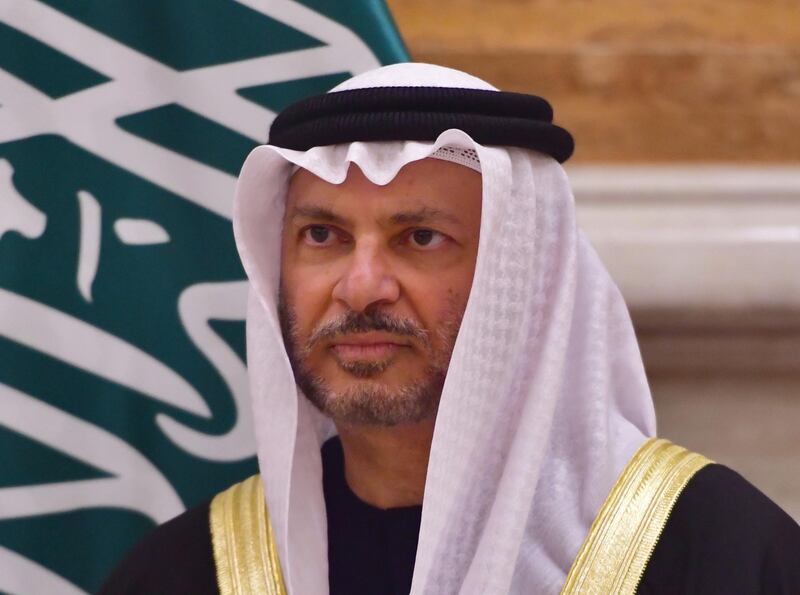Advancing human rights is a critical factor in ensuring stable societies and promoting development, Dr Anwar Gargash told the third UN Human Rights Council periodic review in Geneva on Monday.
The Minister of State for Foreign Affairs said that as a model nation for youth in the region, the UAE had sought to strengthen human rights and legal safeguards within the review framework overseen by the UN High Commissioner for Human Rights.
The report on the third cycle of the universal review will be completed tomorrow.
Dr Gargash said the mechanism had played a helpful role in developing new laws and regulatory practices.
In the context of a region where extremism creates division and polarisation, Mr Gargash said advancing human rights was a “powerful antidote” to pernicious forces.
“The promotion of tolerance and the rejection of extremism is fundamental to the advancement of human rights in the UAE and the wider region,” he told a packed chamber at the Palais des Nations.
“Piece by piece, we have developed a comprehensive strategy to advance the cause of human rights in the UAE.”
The UAE will establish a national human rights institution in line with the Paris Principles and guidance of the reporting process before the end of the year, he said.
In responses to contributions from the floor, Dr Gargash said the country would also study joining additional protocols and extending invitations to special rapporteurs.
Other members of the UAE delegation gave information on labour issues and violence against women.
In response to allegations based on reporting about pre-trial detention, Dr Gargash said there was no detention without an arrest warrant.
“The UAE does not detain or arrest any person arbitrarily,” he said. “Any person who is arrested is dealt with in line with legal proceedings in the UAE. The person is dealt with in line with the law.
“The UAE is a bastion of stability where people from about 200 nationalities live peacefully in social and religious harmony. We are committed to finding the right balance between protecting our legitimate need for security and preserving our reputation as an open society.”
Since the second review was completed in 2013, the federal Government has made significant progress in tackling human trafficking issues, raising labour and workforce rights and in the area of female empowerment. In all, the Government has adopted, in whole or in part, 107 recommendations.
“The empowerment of women is key to the promotion of human rights, in the UAE and across the region,” Dr Gargash said.
He also pointed to the UAE’s role as the world’s largest donor of official development assistance as a proportion of its national income.
Humanitarian challenges cannot be resolved outside of the context of politics and for that reason a resolution of crisis conditions in Syria, Yemen and Libya was imperative.
Alarmed by recent statements on the status of Jerusalem, Dr Gargash urged progress on the establishment of an independent Palestinian state.
The formal UAE submission said the country’s Vision 2021 establishes six national priority objectives for the Government that guide improvements in human rights.
“These include a cohesive society that preserves its identity, a safe society and a fair judiciary, a competitive knowledge-based economy, a first-rate education system, and a sustainable environment and integrated infrastructure,” it said.
Among other highlights was the “Wadeema” Act of 2016 granting children the right to life, survival and development.
“The act also offers safeguards children from all forms of neglect, exploitation and ill treatment, as well as all forms of physical violence and psychological abuse,” the report said.
There was rapid progress on the inclusion of women on the governing boards of all Government bodies, institutions and companies.
“There were nine female members of the Federal National Council during its 16th legislative session, constituting 22.5 per cent of the council,” the report said.
“Emirati women comprise 43 per cent of the workforce and hold 66 per cent of government sector positions, including 30 per cent of senior decision-making posts. They also hold 15 per cent of professional posts,” the national report said.
In its submission, the Office of the High Commissioner for Human Rights recognised considerable developments in the UAE in the past four years.
“UAE’s efforts in combating trafficking are marked as a good example,” the office said. “This included the Adoption of Federal Act Law No 1 of 2015, which provides protection for victims of trafficking, and the 2012 and 2015 Amendments of Federal Law No 51 of 2006 on combating trafficking.”
It also hailed the progress in raising the status of women.
“The National Strategy for Empowerment of Emirati Women in the UAE for 2015-2021 ... provides a framework for government, private sector and civil society organisations to establish work plans to increase women’s presence and empowerment mainly in the economic sector in the UAE.”





